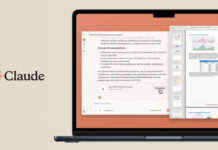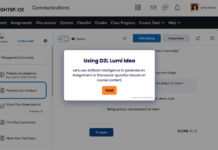IBL News | San Francisco
OpenAI yesterday launched ChatGPT Enterprise, with similar features included in Microsoft’s Bing Chat Enterprise.
Experts see this move as an attempt to combat the fears of businesses that have restricted their employees from using the consumer version of ChatGPT.
Essentially, it adds “enterprise-grade” privacy and data protection and analysis capabilities on top of the vanilla ChatGPT, along with enhanced performance and customization options. OpenAI emphasized that it won’t train models on data sent by businesses.
ChatGPT Enterprise provides a dashboard with admin tools. It includes integrations for single sign-on, domain verification, usage statistics, and templates to build internal workflows.
It also comes with unlimited access to Code Interpreter, now called Advanced Data Analytics, which allows one to analyze data, generate charts and insights, and solve math problems, including from uploaded files.
Currently, Code Interpreter is available on ChatGPT Plus, the $20-per-month premium service.
However, OpenAI plans to design more tools for data analysts, marketers, and customer support.
ChatGPT Enterprise delivers a GPT-4 performance twice as fast as the standard one, with an expanded 32,000-token (around 25,000-word) context window.
OpenAI is under pressure to monetize its tools as it reportedly spent $540 million last year to develop ChatGPT.
Moreover, ChatGPT is costing OpenAI $700,000 a day to run, according to TechCrunch. Yet OpenAI made only $30 million in revenue in fiscal year 2022.
CEO Sam Altman told investors that his company intends to boost that figure to $200 million this year and $1 billion in 2024.
In addition, the usage of ChatGPT is dropping: a total of 9.7% from May to June, according to analytics firm Similarweb.

 En Español
En Español










![OpenAI Released Apps that Work Inside ChatGPT and an SDK [Video]](https://iblnews.org/wp-content/uploads/2025/10/openaieventday-218x150.jpg)



![Apple Marketed Its New iPhones As a Best-In-Class Hardware, Not As an AI Device Maker [Video]](https://iblnews.org/wp-content/uploads/2025/09/iPhoneair-218x150.jpg)







